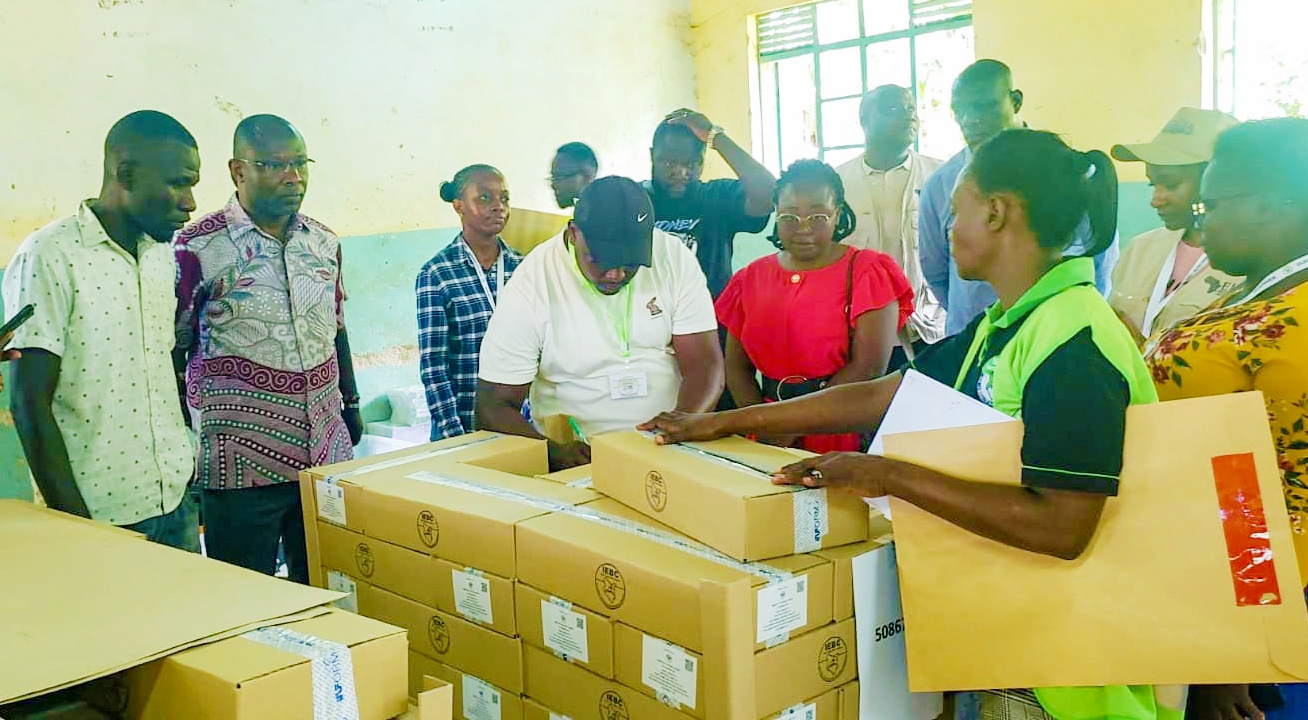.jpg)
BY JULIUS
OTIENO
Senate’s push for a higher allocation of funds for counties in the current financial year has triggered a standoff between the lawmakers and the National Treasury.
The Senate has rejected a bid by the Treasury to give the devolved units Sh380 billion.
Instead,
lawmakers have maintained that the counties should be allocated Sh400.1
billion.
However,
the Treasury insisted that it could only afford to give Sh380 billion, a
position that the National Assembly endorsed.
On Thursday, the
senators voted to reject the Division of Revenue Bill, 2024 which allocates the
counties Sh380 billion.
All the 28 elected senators voted to retain the Sh400.1 billion that was in the
original bill despite their counterparts from the National Assembly supporting
the reduction. No senator opposed the bill.
The move
has triggered mediation between the Treasury and the National
Assembly.
Initially,
Parliament had approved an allocation of Sh400.1 billion but soon introduced
the amendments following the withdrawal of the Finance Bill, 2024.
Senate
Finance and Budget Committee chairman Ali Roba said the counties should not
suffer as a result of the shortfall in the national revenue.
“The
meaning of downward revision of projected ordinary revenue means that we have
deleted the proposal that would have seen both counties and national government
bearing the brunt whenever there is a shortfall because this proposal is not
tenable,” Roba said.
“We
have only proposed a reduction of the national government sharable revenue from
Sh2.6 trillion to Sh2.2 trillion while maintaining the sharable revenue at
400.1 billion as passed by the initial Division of Revenue Bill,” he
added.
However,
speaking in Naivasha on Thursday, Treasury CS John Mbadi
maintained that the government could only manage to disburse Sh380 billion to
the devolved unit in the current financial year.
According
to Mbadi, the withdrawal of the Finance Bill led to the loss of Sh344 billion
in revenue with the national revenue collections projections falling from
Sh2.91 trillion to the current Sh2.6 trillion.
"We
have extended the matter on counties revenue sharing to the mediation team
including senators and other state agencies which I believe will find a
solution soon," the CS said.
Mbadi
said the current revenue deficits had seen the government turn to borrowing to
finance the payment of recurrent expenditures including salaries, which was
unsustainable.
The CS
committed to resume timely disbursement of funds to counties by December, which
he said would cushion the counties from turning to borrowing at high interest
rates.
Mbadi,
while addressing the Council of Governors Health Committee in Naivasha, said
the National Treasury had proposed several tax measures to raise more revenues
to address the current revenue deficits facing government programmes.
However,
the senators argued counties are struggling to fund non-discretionary
expenditures occasioned by the national government amounting to Sh39.98
billion.
The
counties will inherit on their payroll Sh4 billion in terms of housing levy,
Sh3 billion in enhanced National Social and Security Fund contributions and
Sh5.3 billion for county aggregation and industrial parks.
Further,
the counties will also cater for community health promoters’ payments to the
tune of Sh3.23 billion, Sh5.64 billion for medical equipment services and
Sh2.85 billion towards the Integrated Payroll and Personnel Database.
There is
also the Sh5.8 billion to cater for doctors’ collective bargaining agreement.
The
Council of Governors said slashing the counties’ allocation would have a huge
ripple effect on the counties in terms of facilitating key service delivery.
Vice
chairman Ahmed Abdullahi (Wajir) said the Sh20 billion that the Treasury had
slashed from the total allocation, would have far-reaching consequences on
service delivery.
He
challenged the CS Treasury to reconsider the move even though the initiative
had been referred to the mediation committee.
Baringo
Governor Benjamin Cheboi said already, the counties had captured the current
allocation of Sh400 billion in their budget estimates, which he noted will be
difficult to reconfigure with expected cuts.
"The
move by the National Treasury to cut allocation to counties by Sh20 billion
will have a huge impact on the counties and will force them to lay off some
workers to effect the change,” Cheboi said.
Following
the withdrawal of the Finance Bill in June, President William Ruto proposed a
reduction of Sh20 billion in the 2024-25 financial year.
In a
communication to Parliament, Ruto declined to assent to the County Allocation
of Revenue bill and sent it back to the House for consideration.
The bill
was presented for Presidential Assent on June 28, 2024,
but Ruto declined citing the failure to enact the Finance Bill, 2024, which he
said necessitated the re-organisation and rationalisation of
the government's financial obligation for the financial year 2024/2025.
“In
exercise of the powers conferred on me by Article 115(1) (b) of the
Constitution, I decline to assent to the County Allocation of Revenue Bill,
2024
“……and
refer the Bill for reconsideration by the Senate, I recommend the Bill be
amended by deleting the First Schedule and replacing it with a Schedule that is
attached to the Memorandum,” reads the Presidential memorandum
Appearing
before senators last month, Mbadi said the country has no money and thus
Kenyans must either start living within their means, cut expenditures as well
as collect more revenues.
Already,
he said in the last two months the country failed to hit its revenue target by
about Sh18.5 billion.













